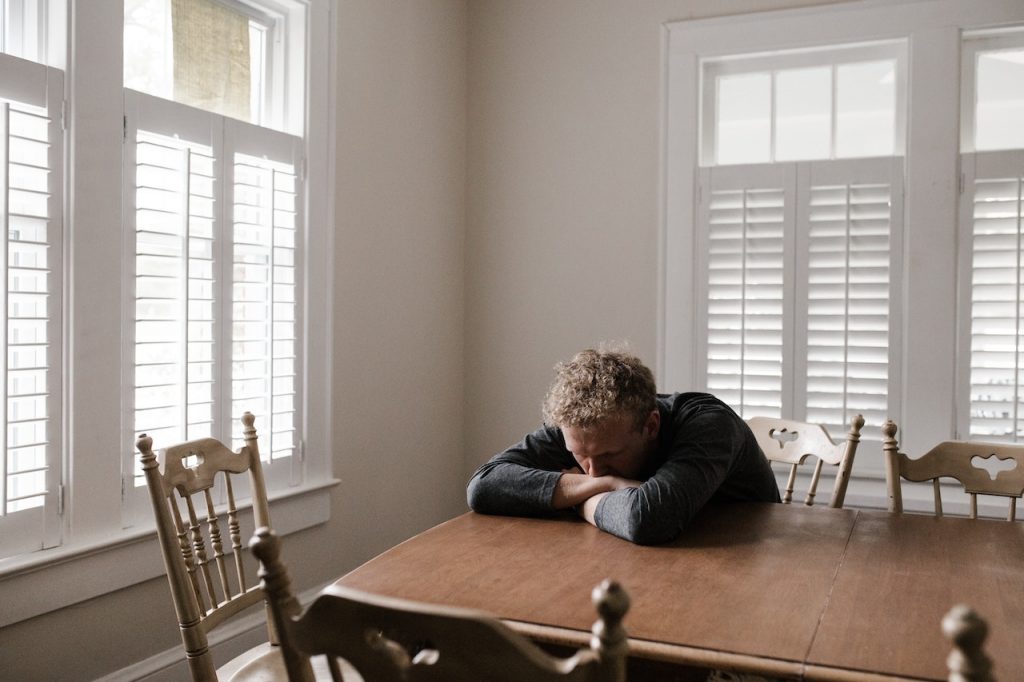There are many common mental health issues. These include bipolar disorder, schizophrenia, and anxiety disorders. It is important to seek help if you suspect that you are suffering from any of these conditions. You can find help by visiting a mental health center. Then, you can start therapy or find support in your community. (Also Read: How to Lose Weight and Maintain It)
Table of Contents
Anxiety disorders
If you suffer from anxiety, you should consult a doctor. This type of mental health problem is often treated with medications and psychotherapy. The treatment will help to reduce the symptoms. The medications that are prescribed include anti-anxiety medications and antidepressants. Some of the medications may also include beta-blockers, which are commonly used to treat heart conditions. Beta-blockers can also help control anxiety symptoms.

While anxiety is a normal emotion, it can lead to more serious conditions. Symptoms of anxiety disorders include a constant feeling of fear, which interferes with everyday activities. The most common anxiety disorder is generalized anxiety disorder, which causes the sufferer to experience excessive worry, fatigue, and irritability. In addition, the sufferer may also experience a rapid heartbeat and shakiness.
Social anxiety disorder affects both men and women, but it is common among teens and young adults. The symptoms usually begin in childhood. People with social anxiety disorder often suffer from low self-esteem and shyness. Their doctors will examine them for physical and mental symptoms and may prescribe tests to rule out other illnesses. In cases where the symptoms persist, doctors may refer a patient to a mental health specialist for further diagnosis. These specialists will ask questions and use tools to help them diagnose the problem.
Anxiety disorders are treatable by medication and psychotherapy. Benzodiazepines and other anti-anxiety drugs are common medications used to reduce panic attacks and anxiety. These medications can help control panic attacks, but some people become dependent on them. For those who want to avoid dependence, beta-blockers and anticonvulsants may be prescribed by their doctor.
Social phobia is another common mental health problem. People with social anxiety disorder fear public places or situations because of the fear of being judged. Those with this type of condition can change their lifestyle to avoid these triggers. Aside from generalized anxiety disorder, some people have specific phobias, such as being embarrassed in front of other people.
In 2017, over 970 million people in the United States had a mental health disorder. Anxiety disorders and depression often go hand in hand. People with both of these mental health problems suffer from intense feelings of panic, worry, and anxiety. These feelings can make it hard to do normal things and may last for a long time.
Depression
Depression is one of the most common mental health disorders and is very treatable. 80% to 90% of people respond to treatment and gain relief from symptoms. The first step to treating depression is getting a full evaluation by a health professional. This evaluation will involve a physical examination and a detailed interview with the patient. The health professional will also conduct blood tests to rule out any medical conditions that may be the cause of the depression symptoms. The evaluation will also look at the patient’s medical history, family background, and cultural background.
Depression is one of the most common mental health issues in the world and is the leading cause of disability worldwide. It is also one of the leading causes of suicide, contributing to nearly 40,000 deaths each year in the U.S. and is the fourth most common cause of death in individuals aged 15 to 29. It is important to seek treatment early for the best chance of recovery.
Although there are various treatments for depression, they are not always available. This is due to several factors, including social stigma, a lack of healthcare providers, and inadequate resources. In some countries, only 2% of the health-care budget is allocated to mental health care. This means that many people do not get the care that they need.
Symptoms of depression can vary widely among people, which makes it important to know what triggers your depression. Although a person’s genes and environment play a part in their risk for depression, it does not mean that they are genetically susceptible to the disease. It is also important to remember that depression can be influenced by differences in brain chemicals.
Depression can affect people of any age. It often begins in adulthood, but it can manifest as early as their late teens. Many chronic mood disorders start as anxiety disorders in children. Fortunately, the symptoms of depression are curable through medication and talk therapy. If you are suffering from depression, your health care provider will help you find the right treatment.
Getting help for your depression is essential. A qualified health care professional can rule out many possible causes and provide accurate and effective treatment. They will ask you questions about your symptoms and do physical exams, blood tests, and fill out questionnaires.
Bipolar disorder
The first step in diagnosing and treating bipolar disorder is talking with a healthcare provider. A doctor can order tests to rule out other possible causes and conduct a physical exam. He or she may also conduct a mental health evaluation. A healthcare provider may refer you to a mental health care provider who has experience treating people with bipolar disorder after looking at your medical history.
Bipolar disorder is treated through medication and therapy. Therapy can help you identify triggers and change unhelpful thoughts. It can also help you regulate your sleep and eating patterns, allowing you to better monitor your condition. It takes time to reverse the effects of bipolar disorder, but following a treatment plan is essential. Also, a supportive social circle can be important in overcoming the disorder.
Bipolar disorder can cause psychotic symptoms, such as seeing or hearing things that don’t exist. It has both genetic and environmental causes. Treatment involves both medication and talking therapies. Symptoms of bipolar disorder can affect your life in many ways, including your career, relationships, and social interactions.
In addition to therapy and prescription medication, treatment can also include lifestyle changes. For instance, your medical provider may recommend that you try a different diet or quit smoking if you’re experiencing a depressive episode. Taking bipolar medication may improve your mood, but it will only help you control your mood for a certain period of time.
A person with bipolar disorder will experience periods of mania and depression. When they’re depressed, they may have difficulty falling asleep, sleep more than normal, and obsess about negative thoughts, such as committing suicide. A person with bipolar disorder is difficult to treat, so a person with the condition will need a customized treatment plan.
Symptoms of bipolar disorder include changes in mood, energy levels, and appetite. In some cases, people with bipolar disorder may experience severe bouts of binge eating, or they may lose their appetite entirely. They may also experience sleep disturbances or lose their attention. Fortunately, treatment is available to greatly improve mood and improve the quality of life.
Schizophrenia
People suffering from schizophrenia experience a range of symptoms. These include disorganised thinking, problems completing tasks and a loss of insight. People suffering from schizophrenia are also more likely to commit suicide. These symptoms often go hand in hand with clinical depression. Depending on how bad the condition is, there are different ways to treat the symptoms of schizophrenia.
Schizophrenia is a long-term medical illness that can interfere with a person’s ability to think clearly, manage emotions, and relate to other people. Because of its severe nature, people suffering from schizophrenia are often stigmatized and face discrimination. Even though schizophrenia has a bad reputation, there are ways to help people who have it.
A specialist mental health care team can help patients with schizophrenia manage their symptoms. These teams include psychologists and psychiatrists. They can also refer people to crisis teams. The early intervention team can also offer medication or other treatment options. Patients with schizophrenia are often recommended to try different treatments until they find the one that works for them.
People suffering from schizophrenia should make an effort to remain active and meet new people. Joining clubs or volunteering is a great way to meet new people. Taking part in gardening projects and listening to stories of people recovering from the disease can also be helpful. People with schizophrenia also tend to die younger than the rest of the population and may have a number of health problems.
The vast majority of people with schizophrenia do not receive specialist mental health care. About 50% of people in mental institutions suffer from schizophrenia. A third of people with psychosis receive specialist mental health care. Mental health resources are often focused on the care of those in mental hospitals, which makes it important to ensure that people with schizophrenia receive the care they need.
Fortunately, with treatment, people with schizophrenia can lead productive lives and live with their families. Early diagnosis helps reduce frequent relapses, fewer hospitalizations, and less disruption to their lives. (Also Read: Health Benefits of Drinking Water)












